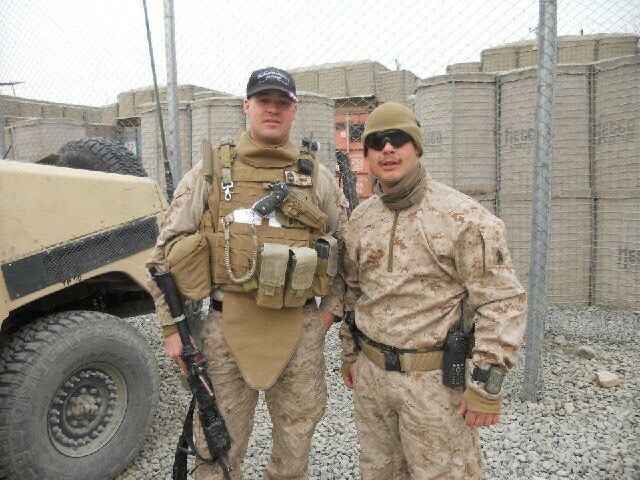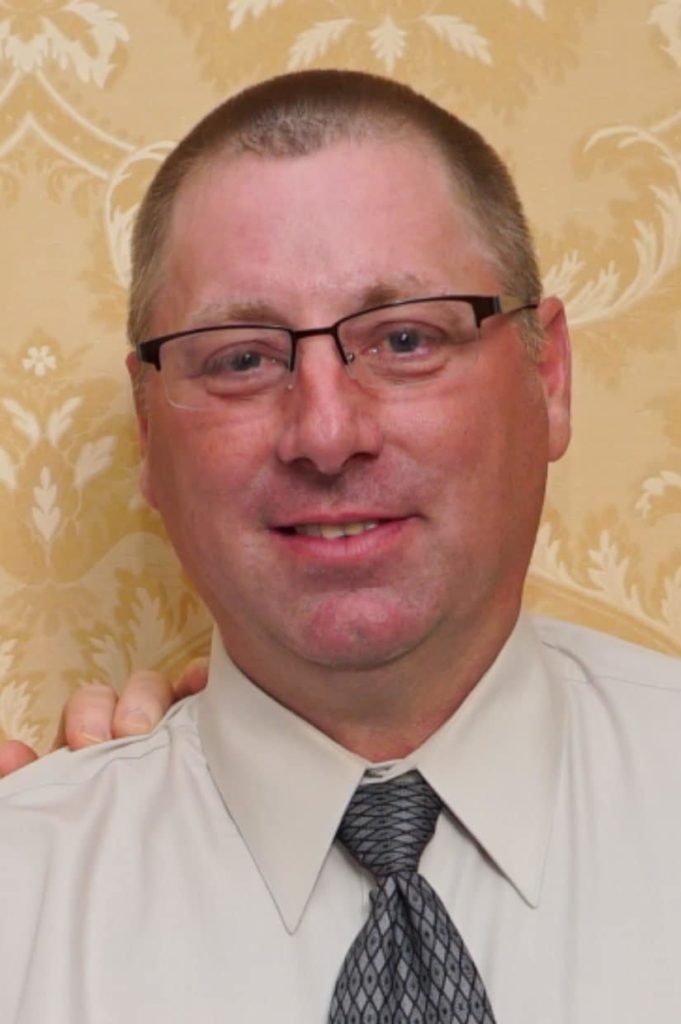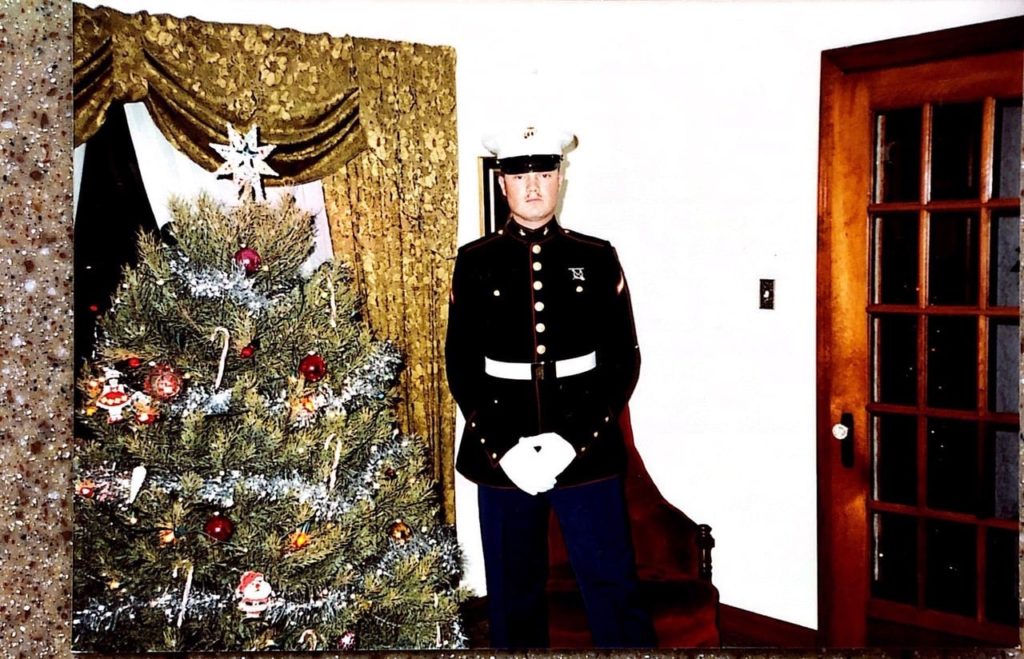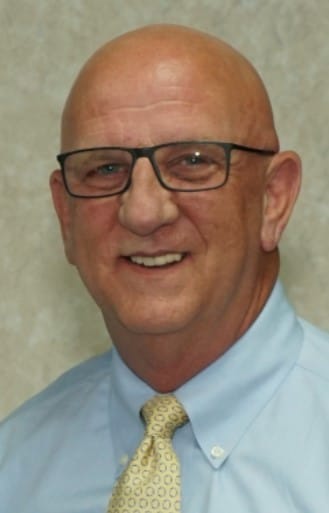Nearly 200 of MPW’s 3,000+ employees have current or past involvement with a branch of the U.S. Armed Forces. In this two-part series leading up to Veterans Day on November 11, The Leader will examine why MPW is a comfortable second home for these individuals and examine core concepts that these establishments have in common.
Click here to read Part 1 of this series.
Joseph Estep
Joseph Estep’s 22-year Marine Corps career began in 1992 and took him all over the world.

“Out of high school, my mom took me to a recruiter, and he showed me all my options and I went from there. That was it,” Estep said.
Little did Estep know he would end up in Haiti, Spain, Iraq, Afghanistan and the United Arab Emirates.
Estep retired from the Marines as a Master Sergeant (E-8) in 2014, but his retirement was short lived.
“My wife didn’t like me being retired,” Estep said. “I got on her nerves and she told me I had to do something with myself. A family member of mine knew Duane Jolliff, who worked for MPW at Honda. I started as a third-shift supervisor at the East Liberty [Ohio] plant in February of 2015.”
In 2018, Estep earned a promotion to Operations Manager, overseeing MARS Petcare in Columbus and Stanley Electric in London, Ohio. He also helps out at Collins Aerospace in Troy Ohio, which is a relatively new customer for MPW’s FEM Division.

“Joe is a great employee,” Jolliff said. “He’s a dedicated worker who will work long hours. A lot of times he won’t leave until the job’s completed and the customer’s signed off and happy.”
Estep said integrity is one of the most important concepts he learned in the military that applies to his work at MPW.
“Integrity means doing the right thing all the time,” he said. “To me, a big part of that is being punctual. In the Marines, if you aren’t 15 minutes early, you’re late. Being late doesn’t set a good precedent in business or anywhere else.
“Taking care of people is another one. Especially when we’re working with people who usually work at other job sites. I want people to know if they come work with me, I’ll treat them right.
Estep said MPW’s structure helps veterans make a smooth shift from military to civilian life.
“I know the hours I have to work and what time I need to come in. If I do my job well, I’ll move up within the organization. Everyone has issues they need to work through during these transitions, though. I had to adjust to a different form of discipline. In the military, if I went out on a mission, I knew there were times when there was a significant chance I wouldn’t come back. So, when you enter a non-military job, you just have to pull yourself away. You handle one thing at a time and focus on getting the job done. You let people know they can talk to you if there is an issue.”
Monty Elam

Even after 30 years in operations and four years in sales for MPW, Monty Elam still uses the skills he learned in the Marine Corps.
Elam, an ICG Area Sales Manager (ASM) whose territory includes Southern Georgia and all of Florida, often compares visiting customers to the times he traveled to other countries in the Marines.
“When you visit a foreign country, you learn and adapt,” Elam said. “When you visit a customer, you have to understand their policies and their safety procedures — how they react and communicate. When I talk to businesses, I always make sure I actively listen and gauge their expectations. That’s made me a better sales rep.”
ICG Sales Director Mike Sokol, a veteran of the Air Force, made a similar observation about the importance of adaptability in both the military and in sales.

“One of the important concepts I learned in the military was dealing with a diverse workforce,” Sokol said. “In the Air Force I met people from all over the world, people from different cultures and religions. You learn from them and adapt. Likewise, as an ASM for ICG, you deal with power plant people, who are different from pulp and paper people, for example. And you’re always communicating with all kinds of people within each industry, from executives to engineers to maintenance personnel.”
Elam, who grew up in Chillicothe Ohio, enlisted into the Marines in 1980, following his father, uncle and grandfather. He served four years, three of which were aboard the USS Ingersoll as a part of a Marine force in the Pacific Ocean. Elam participated in Operation Urgent Fury in 1983, when U.S. forces overthrew Grenada’s government.
In April of 1984, Elam, then a Corporal (E-4), left the Marines and went back to Ohio University in Athens, Ohio. Seeking immediate employment near his hometown, Elam joined MPW in May of 1985.
“My stepfather was a maintenance supervisor at Kenworth,” Elam said. “I signed on as a technician water blasting paint booths. I really fell in love with the business. But after a short time, I started to receive job offers related to my degree in Environmental Science. I thought I was ready to leave MPW, but Monte [Black] talked me into staying. That was almost 35 years ago.”
Elam, who now lives in in Savannah Ga., attributes his successful MPW career to discipline that was instilled in him by the Marine Corps.
“Time management is a critical aspect of discipline that I learned in the Marines,” he said. “I carried that over to MPW. If your phone rings, you respond. That’s 24/7/365.
“MPW is a disciplined company. Monte set those standards. MPW values many key military principles, so hiring people with those principles is a win-win.”
Sokol, who served from 1974-1978 reaching the rank of Sergeant (E-4), said Elam has plenty of skills besides discipline that have allowed him to excel.
“Monty is as loyal as the day is long,” Sokol said. “He’s up early and in late. He’s passionate about his job and about MPW. That guy worked his tail off to adjust from operations to sales. He’s done a phenomenal job and given outstanding effort.”